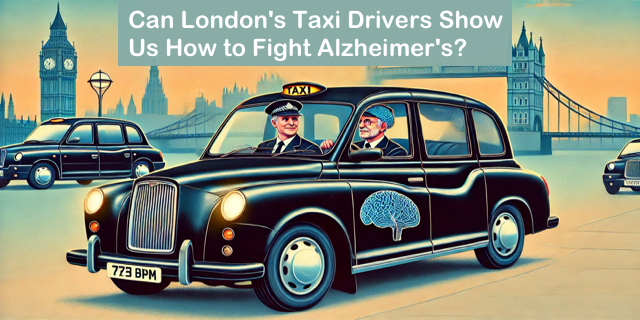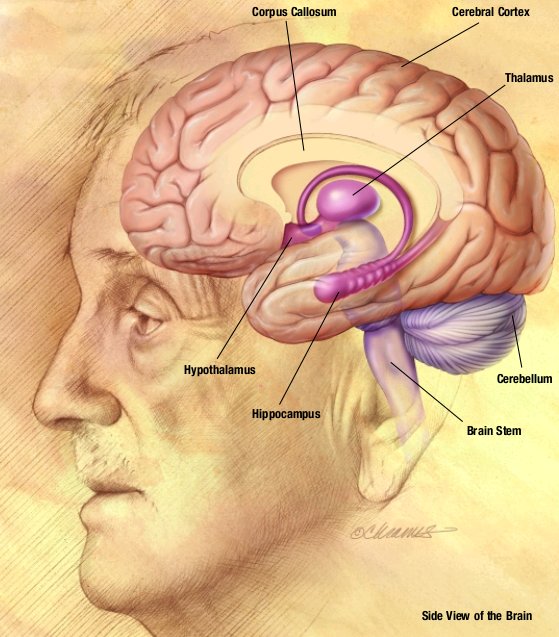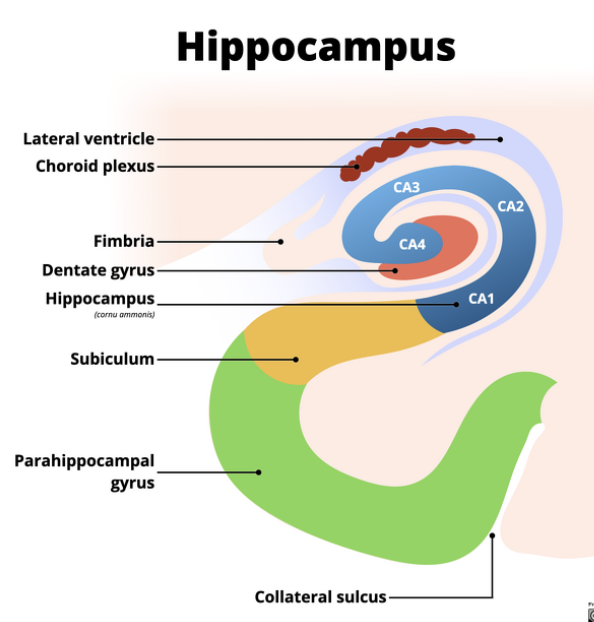Did you know that London taxi drivers take a test called the “Knowledge Exam” in order to obtain a license to drive a taxi? It’s been a requirement for London taxi drivers since 1865. According to the official website:
“London’s taxi service is the best in the world, in part because our cab drivers know the quickest routes through London’s complicated road network. There are thousands of streets and landmarks within a 6 mile radius of Charing Cross. Anyone who wants to drive an iconic London cab must memorize them all: the Knowledge of London.”
In fact, to qualify and earn the green badge to drive the famous “black cab,” drivers learn not only the over 26,000 streets and thousands of points of interest in London, but also 100,000 points in the extended boroughs of London. Because of their extensive spatial knowledge, London taxi drivers have been the subject of much research.
In 2000, a study using structural Magnetic Resonance Imaging (MRI) discovered something especially unique about these taxi drivers’ brains. Compared with people who didn’t drive taxis, the taxi drivers have significantly enlarged posterior hippocampi. In fact, the longer the individual taxi driver did this work, the larger the correlation in size of the posterior hippocampi. In other words, this part of the brain expands (has plasticity) when a person needs to learn to navigate in different environments. [1]
The function of the hippocampus
The hippocampus is part of the brain, found in the temporal portion of the brain. It is responsible for short and long term memory, as well as spatial memory, which is the understanding of what is around you in your environment.
Additionally, the hippocampus converts short term memories into long term memories and organizes storage and retrieval of memories in your brain. Your verbal memory, what helps you to conjure up the words you want to say, is located in the hippocampus as well. This is a huge job for a very small section of the brain.
There is a hippocampus in both the right and left side of the brain, hence the plural hippocampi.
There are actually several parts to the hippocampus. The main four parts to the hippocampus are the dentate gyrus for spatial memory, the hippocampus proper for forming, organizing and storing your memories (divided into parts called CA1, CA2, CA3 and CA4), the subiculum which messages other parts of the brain for retrieving memories and the entorhinal cortex (in the image it is at the very end of the collateral sulcus and unmarked) which acts as the main source of input or the pathway for information to get to and from the hippocampus. [2]
London taxi drivers
The uniqueness of London taxi drivers lies in what they achieve using their own memory, without maps or tools.
Research has compared London taxi drivers to London bus drivers. The reasoning behind this research was to find out if the change in hippocampus size was due to daily driving in London. London bus drivers do not need to study “The Knowledge” in order to be bus drivers. What the studies found was that the taxi drivers had larger hippocampi than the bus drivers. This supports the notion that their use of extensive spatial knowledge increased their hippocampus size.[3]
In addition, research found that before training, the taxi drivers had no differences in hippocampi size than non-taxi drivers. [3]
Other research has looked at the use of GPS. Unfortunately, GPS use may negatively affect spatial memory. [3]
New Research
Why is this research so compelling? The hippocampus is one of the first areas of the brain damaged by Alzheimer’s disease.
A recent retrospective observational study reviewed US mortality data that had been linked to people’s occupation. In this study, researchers evaluated Alzheimer’s disease mortality across various occupations. They found that taxi and ambulance drivers—people who must rely on their ability to do real-time navigation and spatial thinking and memory— were less likely to die of Alzheimer’s disease compared to people working in other professions. In fact, they had the lowest rate of death by Alzheimer’s disease. [4]
This kind of study can only suggest a connection, it cannot be interpreted as causal. But it is intriguing information when set beside the studies of London taxi drivers.
What this research compels us to ask is, what are the things we can do over our lives that will reduce our risk of Alzheimer’s Disease? Is increasing our spatial memory a good starting point? Think about it.
References:
- Maguire EA et.al. (2000). Navigation-related structural change in the hippocampi of taxi drivers, Proc. Natl. Acad. Sci. U.S.A.97 (8) 4398-4403, https://doi.org/10.1073/pnas.070039597
- Hippocampus. (2024). The Cleveland Clinic. [website] https://my.clevelandclinic.org/health/body/hippocampus
- Griesbauer EM, et al. (2022). London taxi drivers: A review of neurocognitive studies and an exploration of how they build their cognitive map of London. Hippocampus. 32:3–20. DOI: 10.1002/hipo.23395
- Patel V. et al.(2024). Alzheimer’s disease mortality among taxi and ambulance drivers: population based cross sectional study. The BMJ: 10.1136/bmj-2024-082194.







